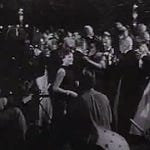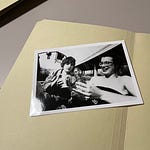Books
I have waited a long time for the debut of Molly Jong-Fast’s title, How to Lose Your Mother: a Daughter’s Memoir.
—Not as long as Molly, to be sure. But I held some of the same dread and anticipation.
I knew both women— not well, but well enough to say, “Whoa Nelly.”
If Molly told the truth, if she was candid— and she is— it was going to be a rough ride.
Molly’s book is about growing up with her mom, Erica Jong, who was an iconic New York celebrity of the literati elite. She was an author celebrity who was drunk on fame— and sadly, also drinking herself to oblivion.
Jong was a sex symbol author (I can relate) because of one book, Fear of Flying. A London Times critic called her “a giant pudenda” — what an inadvertent gift.
Flying made Erica one of the bestselling authors in 20th century American literature. Really. 37 million sold, to be exact.
We don’t live in that kind of reading world anymore.
When Erica lost her bestseller cachet, it was a gradual, but insistent descent. The ignominy just about killed her. And little daughter Molly had a box seat for the whole train wreck.
From the beginning, Erica adored her daughter. She defended her to the hilt, held her aloft. When Molly couldn’t read, (profound dyslexia) Erica never faltered: “my daughter is a genius.”
Simultaneously, Erica was a neglectful mommy. It’s an overused word, but narcissism was in play. Molly has some shit to lay out. She was raised by a nanny, flown around like a piece of baggage, and introduced to her mom’s preposterous new lovers, sycophants, and husbands, for years.
Molly had a sense that her mom would have a hard time being alone with her for an even an hour. Others confirmed it.
In an only-in-Alzheimer’s-world touch, Erica Jong is alive today. This book can’t hurt her feelings. She has no idea who she is, because she has been “not herself” for a long time. Molly spent the most desperate years of her life, coming to grips with her mom and her stepdad Ken, as they fell apart mentally, physically, financially. She took care of them in ways that she had not been taken care of herself.
She had to save the day, and it was not a certain road. It helped to be sober.
I was a late-century writer-friend of Erica Jong’s. I was a huge admirer of Molly’s grandfather, the socialist historian and novelist, Howard Fast.
Erica and I met because we were two generations of “women’s libbers famous for sex.” We hit it off. She was charming, affectionate, and politically astute. We once spent hours in the back of a limo, in a traffic jam, laughing our asses off. There might have been champagne.
This was during Erica’s later period, when she was struggling to stay in the thick of American Letters. Yet she still had the ability to call People magazine and get a story about her latest romance, should she choose.
I could tell when I met Erica, she was not ready to let go of the brass ring. It meant so much to her to be “that girl,” the one that dazzles where ever she goes. I wanted it for her too; she was so vulnerable. No one wanted to give her a reality check; you were afraid she would break. She was talented, a poet at heart. Comebacks happen all the time . . . Yes? I subscribed to the Hope Chest too.
Erica looked to me for some inkling about what “young people” wanted, as if I would know. I told her my spin at being “smart-girl cunt of the month” was far briefer than hers. The sexism and ageism in the publishing business is epic. “John Updike doesn’t have to be fuckable.”
She laughed, and she knew. But she could not abide it.
Once I visited Erica at home in NYC, and her teenage daughter Molly came in; we met for a moment. She was a sullen teen. Ha! Molly could see I wasn’t part of the Upper East Side crew, I probably looked like a hippie. But she had anticipatory skepticism for any new member of mom’s entourage.
Mom made an apology for the kid-rudeness when Molly left the room. Maybe just a loud sigh.
I waved my hands, like, “Oh, it’s normal, no biggie.” I don’t like anyone to pretend to take an interest in me, especially not young people. Ix-Nay on performance-obligated children . . .
I thought to myself, it must be hard being her.
And it is. It was. Molly’s memoir is a page-turner. For readers who have parents disappearing into memory oblivion, Molly is your kin. She knows the pain of having your parent’s body alive, their big eyes staring right at you, and yet they are GONE. You never really get to see goodbye before it’s too late.
For fans who wonder what it’s like to grow up in a celebrity hothouse, to have parents who loom larger than life, Molly’s memoir is graphic. It’s far more candid than many tell-all’s written by other movie star children. Maybe Great Author’s Kids are determined to be more articulate, to have a narrative credibility.
I bet there a lot of celeb children today wandering around the house, saying, “Molly’s memoir is the best book ever written.” Their lives are underground, because of their parents’ fame and bad behavior— and here’s someone, an adult daughter their age— who decided to cut the crap.
It’s a New York story. For authors who’ve spent one minute on the bestseller list, it’s a New York publishing story. It’s a glitter-bomb-life-in-the-fast-lane, and it does it all better than most.
Would I have had the nerve to do the same? —Write about my beautiful haunted mother while she was still alive? No. No fucking way. Even if she was in memory care, I would still be too intimidated— as if Momma would rise from the bed, and say, I SAW YOU THE WHOLE TIME.
Not true though. She didn’t. And she didn’t have to worry, because I was a locked tomb until the coast was clear.
You know, one’s private life is never laid bare. Everything in print is curated, because it’s impossible for a genuine writer to be a plastic camera eye. You don’t want to; it doesn’t make narrative sense. Your own privacy kicks in. The fiction imperative persists; you present a version of something. If you do it well, it’s emotionally true. True-enough is a huge accomplishment. Molly’s will be remembered.
Audio
I thought I’d share an interview with Erica I made in 2007, when she had written a book about Henry Miller’s work and his effect on American sexual politics.
(See audio player at top of this post).
Jong’s The Devil at Large concerns her literary relationship, affection for, and analysis of the notoriously-censored Henry Miller.
Miller had something in common with Jong in terms of commanding simultaneous public disdain and admiration. She told me things about him I never knew, and I relished it.
In Case You Missed It
Reader Survey
Dear Readers:
I can’t help it; I’m curious. May I ask a little about you?











